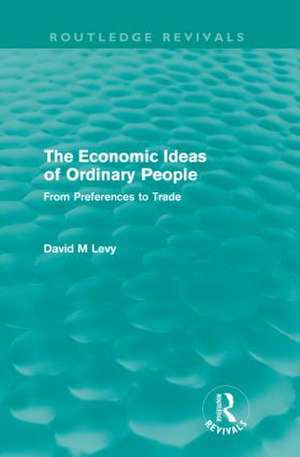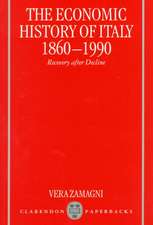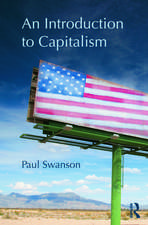The Economic Ideas of Ordinary People: From preferences to trade: Routledge Revivals
Autor David Levyen Limba Engleză Paperback – 5 iul 2012
| Toate formatele și edițiile | Preț | Express |
|---|---|---|
| Paperback (1) | 240.75 lei 6-8 săpt. | |
| Taylor & Francis – 5 iul 2012 | 240.75 lei 6-8 săpt. | |
| Hardback (1) | 850.35 lei 6-8 săpt. | |
| Taylor & Francis – 9 mar 2011 | 850.35 lei 6-8 săpt. |
Din seria Routledge Revivals
- 9%
 Preț: 801.71 lei
Preț: 801.71 lei - 8%
 Preț: 432.64 lei
Preț: 432.64 lei -
 Preț: 168.89 lei
Preț: 168.89 lei -
 Preț: 245.88 lei
Preț: 245.88 lei -
 Preț: 309.79 lei
Preț: 309.79 lei -
 Preț: 258.73 lei
Preț: 258.73 lei - 9%
 Preț: 764.35 lei
Preț: 764.35 lei - 9%
 Preț: 903.42 lei
Preț: 903.42 lei -
 Preț: 311.18 lei
Preț: 311.18 lei -
 Preț: 357.45 lei
Preț: 357.45 lei - 9%
 Preț: 626.93 lei
Preț: 626.93 lei -
 Preț: 317.54 lei
Preț: 317.54 lei - 9%
 Preț: 764.30 lei
Preț: 764.30 lei -
 Preț: 257.01 lei
Preț: 257.01 lei -
 Preț: 238.40 lei
Preț: 238.40 lei -
 Preț: 259.48 lei
Preț: 259.48 lei - 9%
 Preț: 938.10 lei
Preț: 938.10 lei -
 Preț: 341.33 lei
Preț: 341.33 lei -
 Preț: 264.10 lei
Preț: 264.10 lei -
 Preț: 294.98 lei
Preț: 294.98 lei -
 Preț: 308.89 lei
Preț: 308.89 lei -
 Preț: 207.40 lei
Preț: 207.40 lei -
 Preț: 347.50 lei
Preț: 347.50 lei -
 Preț: 302.59 lei
Preț: 302.59 lei -
 Preț: 389.40 lei
Preț: 389.40 lei -
 Preț: 257.01 lei
Preț: 257.01 lei -
 Preț: 358.30 lei
Preț: 358.30 lei - 9%
 Preț: 640.91 lei
Preț: 640.91 lei - 9%
 Preț: 619.49 lei
Preț: 619.49 lei -
 Preț: 228.88 lei
Preț: 228.88 lei -
 Preț: 265.16 lei
Preț: 265.16 lei -
 Preț: 257.90 lei
Preț: 257.90 lei -
 Preț: 266.06 lei
Preț: 266.06 lei -
 Preț: 258.73 lei
Preț: 258.73 lei -
 Preț: 384.01 lei
Preț: 384.01 lei -
 Preț: 246.38 lei
Preț: 246.38 lei - 9%
 Preț: 832.08 lei
Preț: 832.08 lei -
 Preț: 266.20 lei
Preț: 266.20 lei -
 Preț: 294.53 lei
Preț: 294.53 lei - 18%
 Preț: 695.86 lei
Preț: 695.86 lei - 9%
 Preț: 934.96 lei
Preț: 934.96 lei - 5%
 Preț: 243.38 lei
Preț: 243.38 lei -
 Preț: 274.69 lei
Preț: 274.69 lei -
 Preț: 208.20 lei
Preț: 208.20 lei - 9%
 Preț: 659.19 lei
Preț: 659.19 lei -
 Preț: 259.69 lei
Preț: 259.69 lei - 9%
 Preț: 1038.47 lei
Preț: 1038.47 lei -
 Preț: 389.46 lei
Preț: 389.46 lei -
 Preț: 302.14 lei
Preț: 302.14 lei -
 Preț: 302.27 lei
Preț: 302.27 lei
Preț: 240.75 lei
Nou
Puncte Express: 361
Preț estimativ în valută:
46.07€ • 50.20$ • 38.82£
46.07€ • 50.20$ • 38.82£
Carte tipărită la comandă
Livrare economică 23 aprilie-07 mai
Preluare comenzi: 021 569.72.76
Specificații
ISBN-13: 9780415614405
ISBN-10: 0415614406
Pagini: 370
Dimensiuni: 156 x 234 x 20 mm
Greutate: 0.52 kg
Ediția:1
Editura: Taylor & Francis
Colecția Routledge
Seria Routledge Revivals
Locul publicării:Oxford, United Kingdom
ISBN-10: 0415614406
Pagini: 370
Dimensiuni: 156 x 234 x 20 mm
Greutate: 0.52 kg
Ediția:1
Editura: Taylor & Francis
Colecția Routledge
Seria Routledge Revivals
Locul publicării:Oxford, United Kingdom
Cuprins
Part I Introduction and background 1. Why worry about the economic ideas of ordinary people? Part II The demand for ideas 2. Adam Smith and the Texas A&M rats 3. Utility-enhancing consumption constraints 4. Ethics and the basics of logic Part III The supply of ideas 5. Adam Smith's 'natural law' and contractual society 6. Who monitors the monitors? with Susan Feigenbaum 7. Property, justice and judgement Part IV Equilibrium ideas 8. Rational choice inm the Homeric epics 9. The statistical basis of Athenian and American constitutional theory 10. Fame and the supply of heroics Part V A competitive episode: the Malthusian controversy 11. Ricardo and the iron law 12. Some normative aspects of the Malthusian controversy 13. Libertarian communists, Malthusians and J. S. Mill - who is both Part IV Objections and applications 14. Must one believe to obey 15. S. T. Coleridge replies to Adam Smith's 'pernicious opinion' 16. The impossibility of a complete methadological individualist 17. Spinoza and the cost of thinking 18. The myth of monopoly
Descriere
Human actions result from a compound of animal desires, constraints and the words we use to talk about desires and constraints. Modern economics has developed complex theories to explain the operation of both desires and constraints but has neglected the language people use when they talk about them. First published in 1992, The Economic Ideas of Ordinary People discusses how we talk about our economic activitiees and how our talk influences our action.















